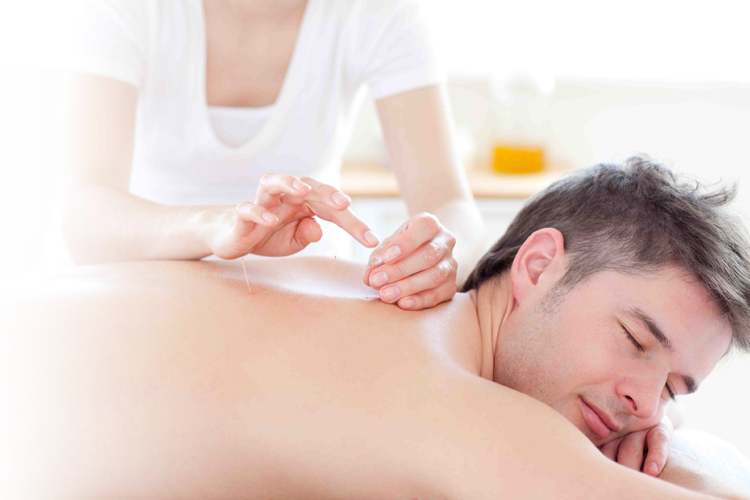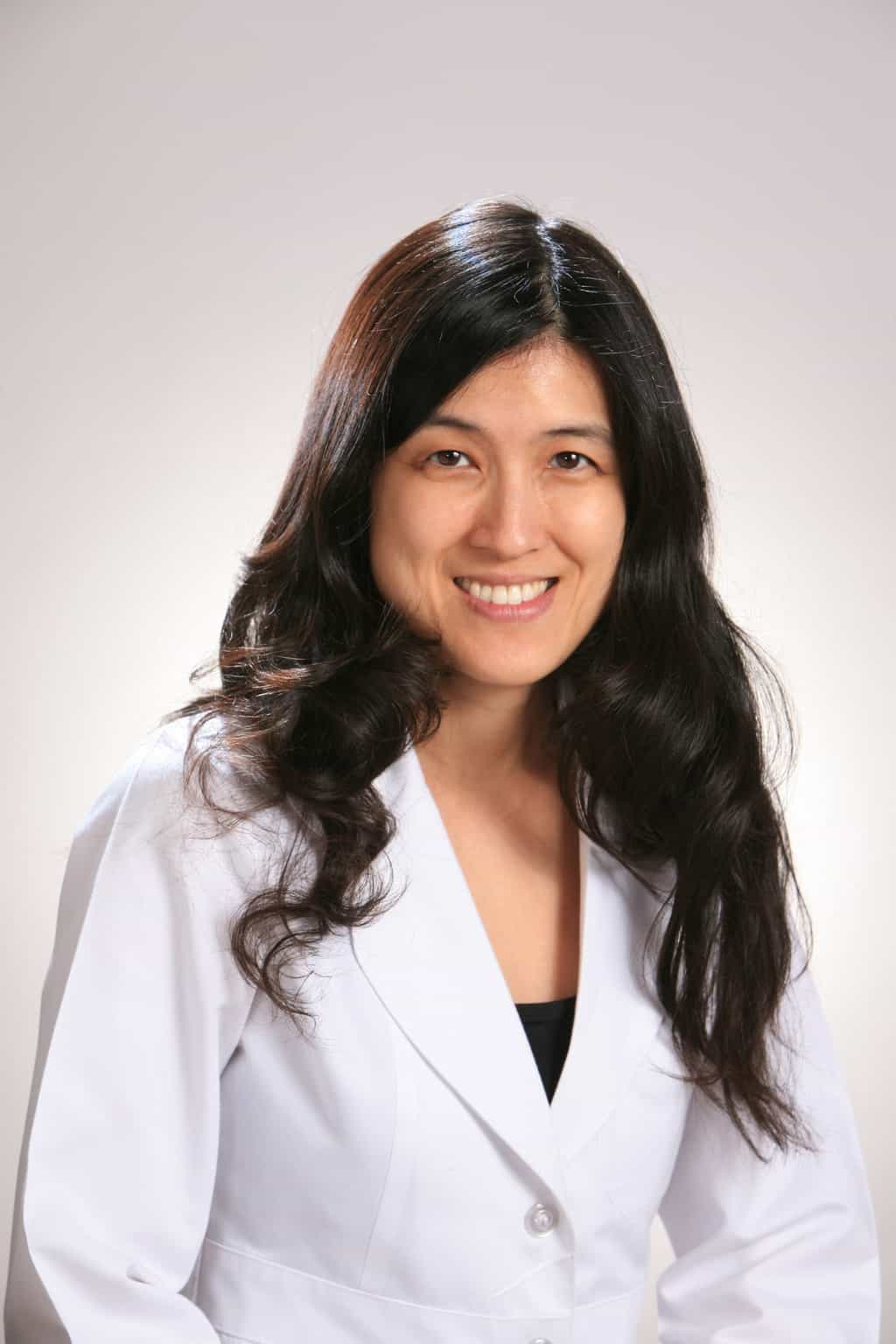
Jeannie Ng, L.Ac., M.A.O.M
She holds Certification from Memorial Sloan–Kettering Cancer Center to manage the side effects associated with cancer support care.
FAQs
What is Acupuncture?
How does Acupuncture work?
What is Acupuncture good for?
- Fertility and Gynaecological conditions: IVF support, painful periods, irregular periods, Menopause syndrome, Hormonal Imbalance
- Pain: headache, migraines, lower back pain, sport injuries, arthritic or rheumatic joint pains
- Cancer care: nausea and vomiting
- Respiratory and allergic conditions: asthma, hay fever, sinusitis
- Addiction problems: smoking cessation, drug and alcohol addictions
What Kind Of Conditions Should I Seek Acupuncture Treatment?
Acupuncture
Acupuncture
Acupuncture is a technique utilizing fine sterile disposable stainless steel needles inserted at specific points in the body to cause a positive response in order to correct various ailments. The ancient chinese believed that there is a universal life energy called qi (pronounce “chi”) that is present in every living being. This energy circulates throughout the body along specific pathways called meridians. A person’s health is influenced by the quality, quantity and balance of qi.
When Qi flows freely throughout the body, one enjoys good physical, mental and emotional well being. Physical and emotional trauma, stress, lack of exercise, seasonal changes, diet, accidents can lead to blockage or imbalance of qi.
Acupuncture is recognized by the National Institute of Health (NIH) and the World Health Organization (WHO) to be effective in the treatment of a variety of medical problems. Among a few conditions on the list: Acute and chronic pain, addiction – alcohol and smoking, stress, fatigue, common cold, emotional problems, digestive issues, morning sickness, PMS, allergies, insomnia, and urinary tract infection.
The following lists of conditions are effectively treated with acupuncture and Chinese herbal therapies according to the NIH and United Nations World Health Organization (WHO).
- Joint Pain
- Limb Pain
- Low Back Pain
- Sciatica
- Disc Problems
- Arthritis
- Sprains & Strain
- Sports injuries
- Muscle cramping
- Shoulder pain
Other
- Face lift
- Fatigue
- Stress
- Asthma
- Immune System
- Weight Loss
- Lowering High Blood Pressure
- Hyper/Hypo Thyroid
- Smoking Cessation
- Alcohol Addiction
- Drug Addiction
- Fibromyalgia
- Infertility
- Impotence
- Irregular Menstruation
- PMS
- Menopause
- Uterine Fibroids
- Ovarian Cyst
- Heartburn
- Acid Reflux
- Abdominal Pain
- Indigestion
- Bloating
- Diarrhea
- Constipation
- Belching
- Flatulence
- IBS
- Headache
- Migraine
- Neuralgia
- Parkinson’s Disease
- Multiple Sclerosis
- Bell’s Palsy Emotional
- Depression
- Anxiety
- Nervousness
- Panic Attack
- Post Traumatic Syndrome
- Mood Swings
Cupping Treatment
Ancient Medicine, Modern Healing
Cupping is applicable to many health concerns. It has been proven effective for most pain and muscle tightness. Cupping is an effective technique which can be applied by itself or in conjunction with acupuncture treatment.
History of Cupping
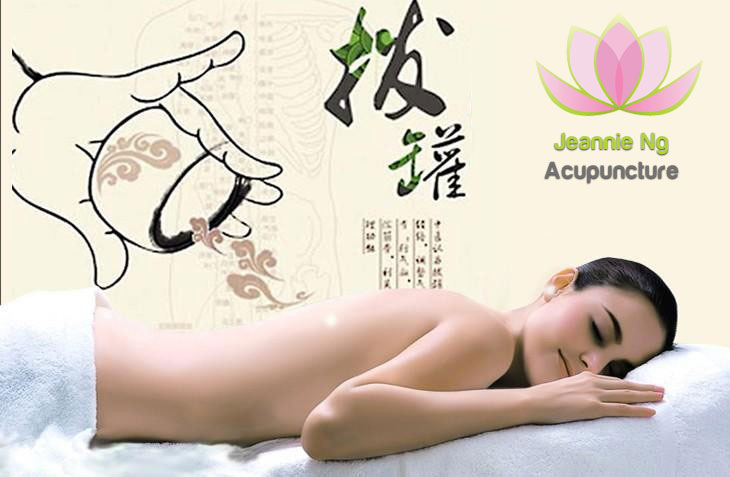 This technique in various form had been found in Asia, Europe, the Middle East and the Americas. In Traditional Chinese Medicine (TCM), cupping is a method of applying acupressure by creating a vacuum next to the skin surface. The therapy is used to relieve stagnation or blockage. This modality is commonly used in treatment for musculoskeletal pain such as neck, shoulder and low back pain. It is also used in treatment of respiratory diseases like the common cold, asthma and respiratory allergies. In addition, cupping relieves discomfort from gastrointestinal disorders like chronic indigestion and bloating.
This technique in various form had been found in Asia, Europe, the Middle East and the Americas. In Traditional Chinese Medicine (TCM), cupping is a method of applying acupressure by creating a vacuum next to the skin surface. The therapy is used to relieve stagnation or blockage. This modality is commonly used in treatment for musculoskeletal pain such as neck, shoulder and low back pain. It is also used in treatment of respiratory diseases like the common cold, asthma and respiratory allergies. In addition, cupping relieves discomfort from gastrointestinal disorders like chronic indigestion and bloating.
What to Expect
A vacuum suction is created from each glass cup to the skin. Areas on skin will show varying red or purple discoloration. This is an indication of internal stagnation being drawn to the surface. The discoloration is temporary and will dissipate within a few days and is not a cause of concern.
Chinese Herbal Medicine
What is Chinese herbal medicine?
Chinese herbal medicine is part of an integrated system of primary health care, known as Traditional Chinese Medicine (TCM) that has an uninterrupted history of development dating back thousands of years in China and other parts of East Asia.
Traditional health care & a modern profession
The origins of Chinese herbal medicine in China can be traced back at least 5000 years, making it one of the oldest and most long-standing health care systems in the world. In the intervening millennia, the practice of Chinese herbal medicine and TCM has developed and matured to become what it is today – a natural and holistic system of primary health care that is being used by people from a wide range of cultural and social backgrounds to effectively treat a wide range of chronic and acute health problems.
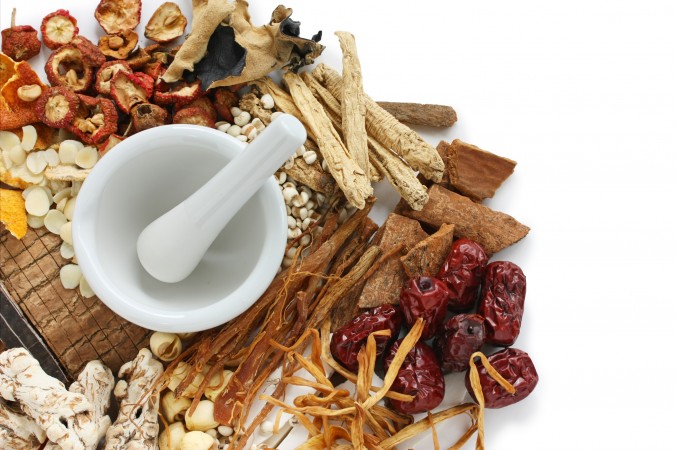 Holistic health care
Holistic health care
Chinese herbal medicine takes an holistic approach to understanding normal function and disease processes and focuses as much on the prevention of illness as on the treatment. Most diseases or illnesses present with a core set of recognisable signs and symptoms, but the actual presentation of a particular disease or illness will vary from person to person. For this reason, people with similar health conditions may be provided with quite different Chinese herbal medicine prescriptions. A qualified practitioner is able to prescribe a Chinese herbal formula that specifically matches and treats your individual health problem. As your condition changes and improves with treatment, the Chinese herbal treatment is also adjusted and modified until the desired health outcome is achieved.
What substances are used in Chinese herbal medicine?
Today, there are more than 450 substances commonly used in Chinese herbal medicine – most are of plant origin though some animal and mineral substances may also be used. You may find some in your kitchen, such as ginger, garlic and cinnamon, while others such as chrysanthemum and peony flowers, are more likely to be found in your garden! Many of the substances used will be unfamiliar to you and have names like chai hu (bupleurum), di huang (rehmannia), and huang qi (astragalus). Some substances that were used traditionally are no longer part of modern professional Chinese herbal medicine practice. For example, traditional remedies that are derived from endangered species have been replaced by other substances with similar actions.
How is Chinese herbal medicine prescribed?
Chinese herbal medicines are prescribed either singly or made into formulas which take into account the individual therapeutic action of each herb and well as the effects when combined together. A well constructed formula maximizes the effectiveness for treating a particular condition, while counteracting and minimizing the unwanted effects of an individual herb.
What conditions does Chinese herbal medicine treat?
In addition to providing effective treatment for a wide range of health disorders, Chinese herbal medicine may also be used to assist with general health maintenance and disease prevention. By strengthening and enhancing normal body functions, the immune system is boosted and a general sense of well-being promoted. A snapshot of conditions typically treated with Chinese herbal medicine includes:
- Insomnia and fatigue
- Loss of appetite and common digestive disorders
- Constipation and diarrhoea
- Irritable bowel syndrome
- Common cold and influenza
- Chronic headaches
- Skin disorders
- Fluid retention
- Anxiety, depression and stress
- Allergies
- Rheumatoid and osteoarthritis
- Premenstrual syndrome and painful menstruation
- Excessive menstruation
- Infertility
- Impotence and prostate disorders
- Disorders associated with menopause
Traditional Chinese Medicine (TCM)
Traditional Chinese Medicine (TCM)
Traditional Chinese Medicine (TCM) is a holistic healing system that includes diagnosis, treatment, and illness prevention. It has a history of over two thousand years.
Unlike the Western medical system, TCM addresses the body as a whole unit rather than treating a particular symptom. Western medicine “mask” the symptoms without getting to the root problem.
TCM emphasizes the importance of creating balance in the body and allow the body to heal on its own through acupuncture and chinese herbal formulas. Traditional Chinese Medicine can effectively treat acute and chronic conditions and provide preventive care.
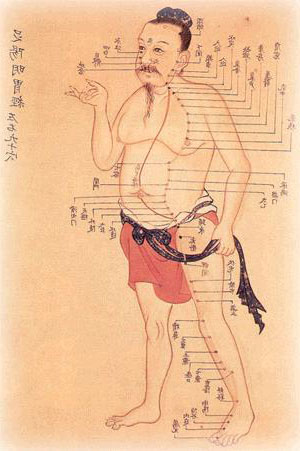
Fertility Acupuncture
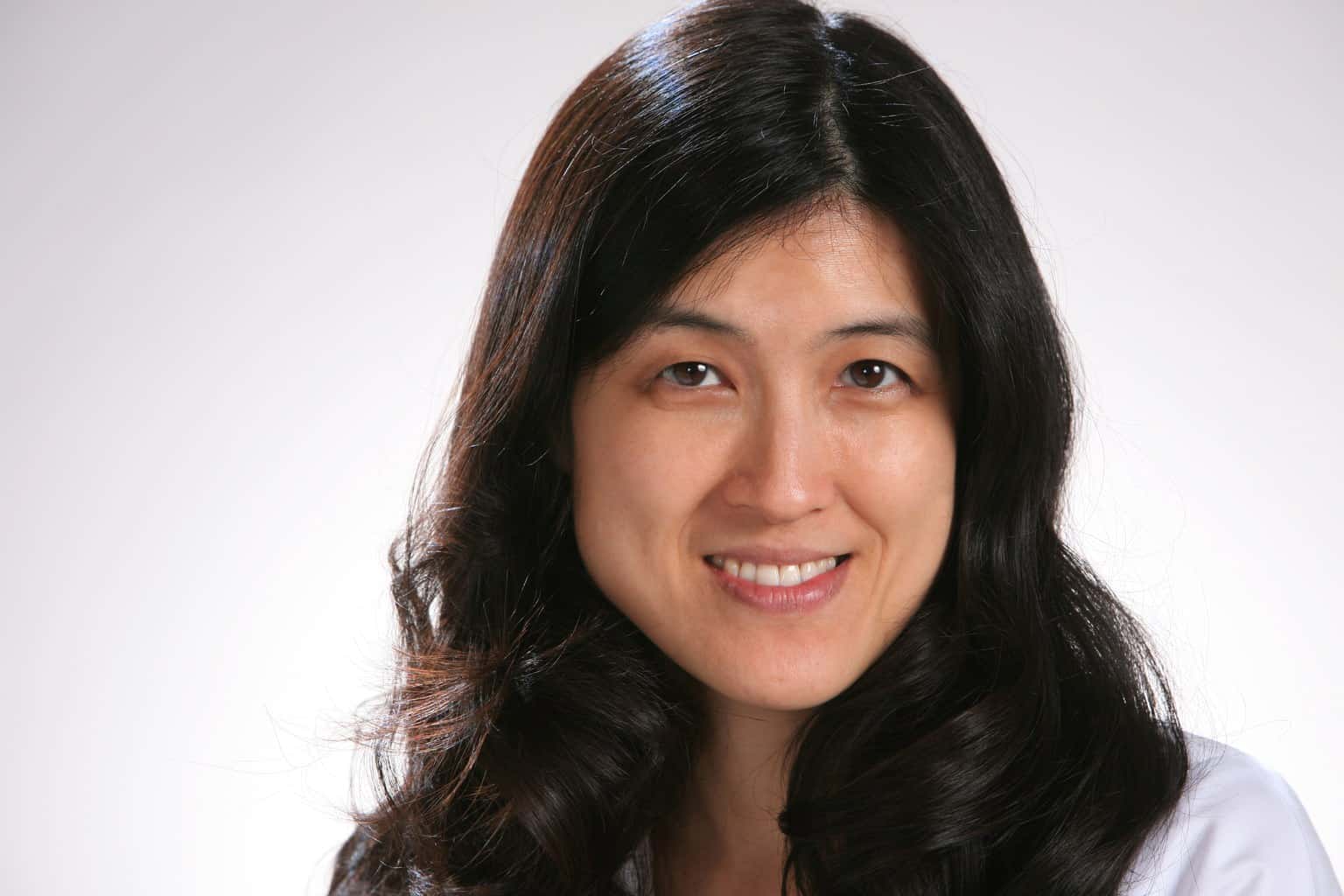
Jeannie Ng, L.Ac., M.A.O.M
holds Certification in:
- Integrative Fertility Symposium
- Lab Testing and Hormonal Assessment for Infertility
- Western Reproductive Endocrinology
- Acupuncture and Herbal Treatments with IVF
- Si Yuan Balance Method Acupuncture
Natural, Safe, Effective
All bodies build up imbalances over time and those imbalances can be a hindrance to fertility. Acupuncture is both a safe and effective treatment for use in putting the body back in its natural, balanced state. This balancing of the body can help to improve fertility. Acupuncture increases blood flow throughout the body including the reproductive organs. This helps to provide a better environment for fertility.
Research shows that stress can have a negative impact on our health. That negative impact can contribute to many health problems, Fertility is no exception. Acupuncture helps to relax the body and mind while relieving the stress that impacts us all daily.
Chinese Herbal Medicine and proper nutritional consultation can enhance the Acupuncture treatments even further. Treatments can be done alone or as preparation for IVF or IUI procedures.
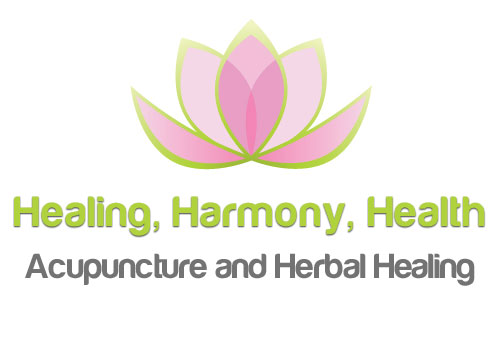
Cancer Support Acupuncture

Jeannie Ng, L.Ac., M.A.O.M
holds Certification from Memorial Sloan–Kettering Cancer Center to manage the side effects associated with Cancer Support Care.
Acupuncture Helps Ease Side Effects and Symptoms of Some Cancers
The following information is taken directly from the Memorial Sloan-Kettering Cancer Center site and the Memorial Sloan-Kettering Integrative Medicine site: Recent studies have shown that acupuncture can help control a number of symptoms and side effects — such as:
- Pain or Chronic Pain
- Chronic Fatigue
- Dry mouth
- Nausea
- Vomiting
- Headache
- Loss of range of motion
Acupuncture for Head and Neck Cancer
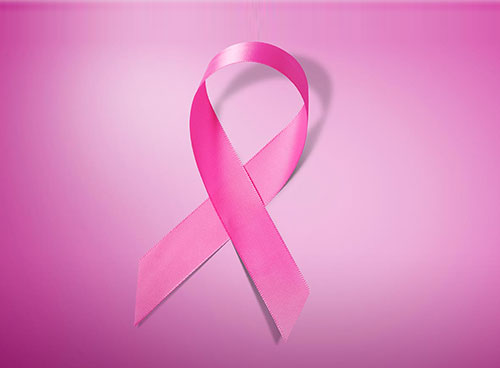 For many of the more than 100,000 individuals diagnosed with head and neck cancer each year in the United States, the cancer spreads from its primary location to lymph nodes in the neck. When this occurs, nerves known as spinal accessory nerves must also be removed along with the affected lymph node, which can lead to shoulder function problems. A recent study [PubMed Abstract] conducted by Memorial Sloan-Ketteringinvestigators and published in the April 2010 issue of the Journal of Clinical Oncology sought to determine if acupuncture could reduce pain and dysfunction in individuals with cancer of the head or neck who had received a surgical dissection of lymph nodes in their neck. The study evaluated 58 patients who were suffering from chronic pain or dysfunction as a result of neck dissection. For four weeks, study participants were randomly assigned into one of two groups: those receiving weekly acupuncture sessions and those receiving standard care, which included physical therapy, as well as pain and antiinflammatory medication. The study found that individuals in the group receiving acupuncture experienced significant reductions in pain and dysfunction when compared with individuals receiving standard care. Individuals in the acupuncture group also reported significant improvement in xerostomia, a condition in which patients receiving adjuvant radiation therapy experience extreme dry mouth.
For many of the more than 100,000 individuals diagnosed with head and neck cancer each year in the United States, the cancer spreads from its primary location to lymph nodes in the neck. When this occurs, nerves known as spinal accessory nerves must also be removed along with the affected lymph node, which can lead to shoulder function problems. A recent study [PubMed Abstract] conducted by Memorial Sloan-Ketteringinvestigators and published in the April 2010 issue of the Journal of Clinical Oncology sought to determine if acupuncture could reduce pain and dysfunction in individuals with cancer of the head or neck who had received a surgical dissection of lymph nodes in their neck. The study evaluated 58 patients who were suffering from chronic pain or dysfunction as a result of neck dissection. For four weeks, study participants were randomly assigned into one of two groups: those receiving weekly acupuncture sessions and those receiving standard care, which included physical therapy, as well as pain and antiinflammatory medication. The study found that individuals in the group receiving acupuncture experienced significant reductions in pain and dysfunction when compared with individuals receiving standard care. Individuals in the acupuncture group also reported significant improvement in xerostomia, a condition in which patients receiving adjuvant radiation therapy experience extreme dry mouth.
Acupuncture and Leukemia
Many people with leukemia try additional treatments outside their standard care, hoping to manage symptoms and, in some cases, to improve their treatment outcome. In a commentary[PubMed Abstract] on the subject in the September 2009 issue of Expert Reviews Anticancer Therapies, Memorial Sloan-Kettering investigators examined the results from available studies testing the effectiveness of such approaches. They report that among the complementary therapies used to decrease symptoms and side effects, acupuncture is very beneficial for symptom management. For some leukemia patients, cancer chemotherapy drugs can damage the peripheral nervous system (a condition known as peripheral neuropathy), causing pain, numbness, tingling, swelling, and muscle weakness in various parts of the body, especially in the hands and feet. In some cases, doctors must reduce the chemotherapy dose in order to prevent the neuropathy from progressing further. Acupuncture has been found to decrease these difficult neuropathy symptoms, allowing the maximum amount of chemotherapy to be used, thereby increasing the patient’s chance for a successful outcome. Acupuncture is also known to reduce the effects of nausea caused by a variety of chemotherapy agents used to treat leukemia. Research has shown that timing the acupuncture sessions one to two days before chemotherapy infusion and continued weekly throughout the chemotherapy regimen produces the best results. In addition, the authors note that acupuncture has been proven safe for patients receiving the anticoagulation drugs Coumadin® or heparin during their leukemia treatment. The review’s authors note that, in general, it is important to distinguish between complementary therapies — including acupuncture, self-hypnosis, yoga, meditation, and therapeutic massage — and alternative therapies, which are unproven and ineffective, and may interfere with mainstream cancer treatments.
Acupuncture and Breast Cancer
A significant number of breast cancers have receptors for the hormone estrogen. These receptor-positive breast tumors are more likely to respond to therapy with anti-estrogen medications, which take advantage of the cancer cells’ dependence on hormones for growth. Women with these tumors are often given treatment that blocks the production of estrogen, which is meant to slow the growth of the tumor. These treatments can induce early menopause, leading to symptoms such as hot flashes, fatigue, and excessive sweating. Because these women cannot receive hormone replacement therapy, which is usually used to treat such symptoms, doctors typically prescribe antidepressants such as the drug venlafaxine (Effexor). A recent study examined whether acupuncture reduces some of these common side effects and produces fewer adverse effects than antidepressants. In the study [PubMed Abstract], published in the February 2010 issue of the Journal of Clinical Oncology, 50 women with hormone-receptor positive breast cancer were assigned into one of two groups. The first group received 12 weeks of acupuncture, and the second group received treatment with venlafaxine. Both groups experienced significant decreases in hot flashes, depressive symptoms, and other quality-of-life symptoms. However, women in the group taking venlafaxine began to re-experience their symptoms about two weeks after stopping drug therapy. In comparison, it took 15 weeks for the symptoms to return for women in the group receiving acupuncture. In addition, women in the acupuncture group reported no significant side effects during treatment, while the group taking venlafaxine experienced 18 incidences of adverse effects, including nausea, dry mouth, dizziness, and anxiety.
Memorial Sloan Kettering Cancer Center: Acupuncture can control a number of distressing symptoms, such as shortness of breath, anxiety and depression, chronic fatigue, pain, neuropathy, and osteoarthritis.” Barrie Cassileth, PhD, Chief, Integrative Medicine Service, MSKCC.
Cosmetic Acupuncture
Facial Rejuvenation
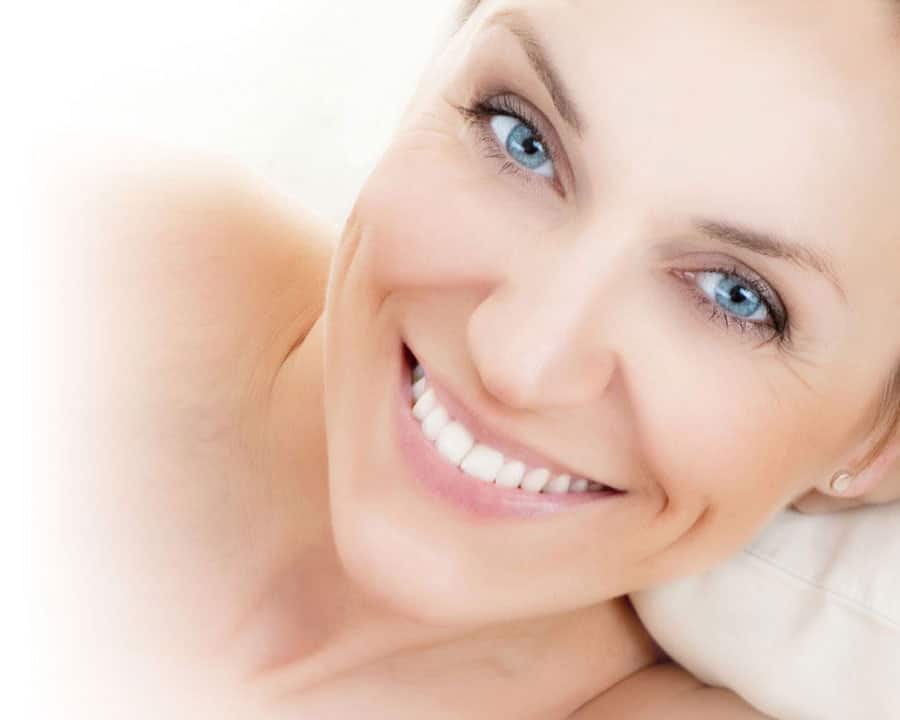
Benefits
- Improvement in the fine lines of the face and a diminishing effect on deeper wrinkles
- Moisturized, softer skin and a more even skin tone
- Improved muscle tone and firmer jaw line
- Reduction in puffiness
- Reduction or elimination of rosacea and acne
Acupuncture Facial Rejuvenation™ Package
A Traditional Clinical Acupuncture Treatment for the Face. Experience an Eastern Therapy alternative to Western Medical facial procedures. Immediate tightening with long lasting results after the conclusion of your treatment series. Increases circulation and flow of energy, causes collagen reformation by fibroblast migration resulting in a permanent reduction of lines and wrinkles. After conclusion of treatment series, maintenance is recommended every 6 months.
(Ten Sessions, 60 minutes each) Investment – $1500
Acupuncture Face and Body Renewal™
A treatment series of facial rejuvenation coupled with body renewal. This series incorporates specific body points for maximum benefits. Placement of body needles are unique to each patient.
(Ten Sessions, 60 minutes each) Investment – $2100
Acupuncture Facial Pick Me Up™
A single treatment for immediate firming results. Ideal for special events. For optimal results, schedule The “Essential Facial” preceding this treatment.
(60 minutes) Investment – $195
Acupuncture Facial Rejuvenation and Mask™
A traditional acupuncture treatment for the face including a mask specifically for hydration, antioxidants, detoxifying and brightening.
(60 minutes) Investment – $245
Clients’ Comments
Jeannie Ng Acupuncture at Persona Medical Spa
2311 West Alabama St.
Houston, Texas 77098
Phone: .713.630.0772
Start Getting Relief Today!
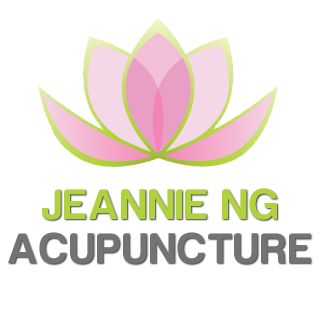
Blog
Can People with Breast Cancer Benefit from Complementary Medicine?
Jeannie Ng | Acupuncture SUPPORT Can People with Breast Cancer Benefit from Complementary Medicine? By Julie Grisham, MS, Science Writer/Editor For many people undergoing treatment for breast cancer, troubling or painful side effects can feel like a fact of life. Some...
Acupuncture Provides True Pain Relief in Study
Jeannie Ng | Acupuncture ALTERNATIVE MEDICINE Acupuncture Provides True Pain Relief in Study By ANAHAD O'CONNOR A new study of acupuncture — the most rigorous and detailed analysis of the treatment to date — found that it can ease migraines and...
Acupuncture For Anxiety Relief
This article originally appeared in everyday HEALTH® | Image Emely/Corbis Why Acupuncture Works for Anxiety Relief By Maura Hohman Reviewed by Lindsey Marcellin, MD, MPH Not just for pain, acupuncture is a natural way to treat anxiety. It works faster than...
Allergy Time In Houston| Acupuncture For Seasonal Allergies
Jeannie Ng | Acupuncture Acupuncture and Seasonal Allergiesby Patrick J. LaRiccia, M.D.MARF Board MemberSymptoms of running nose, sneezing, and watery itchy eyes that recur during specific parts of the year (especially Spring and Fall) are a cause of much suffering of...
Health Trend: Celebrities use Acupuncture for Infertility
Jeannie Ng | Acupuncture LIFESTYLE | HEALTH Health Trend: Celebrities use Acupuncture for Infertility IndiaToday.in New Delhi | UPDATED Many stars swear by acupuncture to assist in conceiving children and maintaining good health during pregnancy. After battling...

